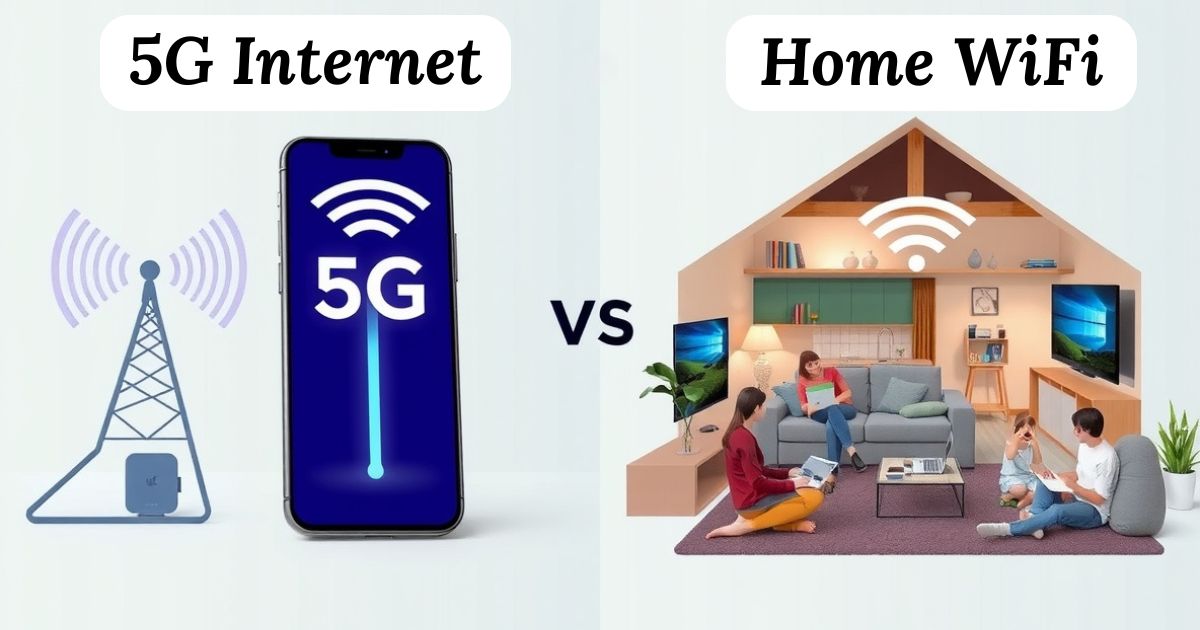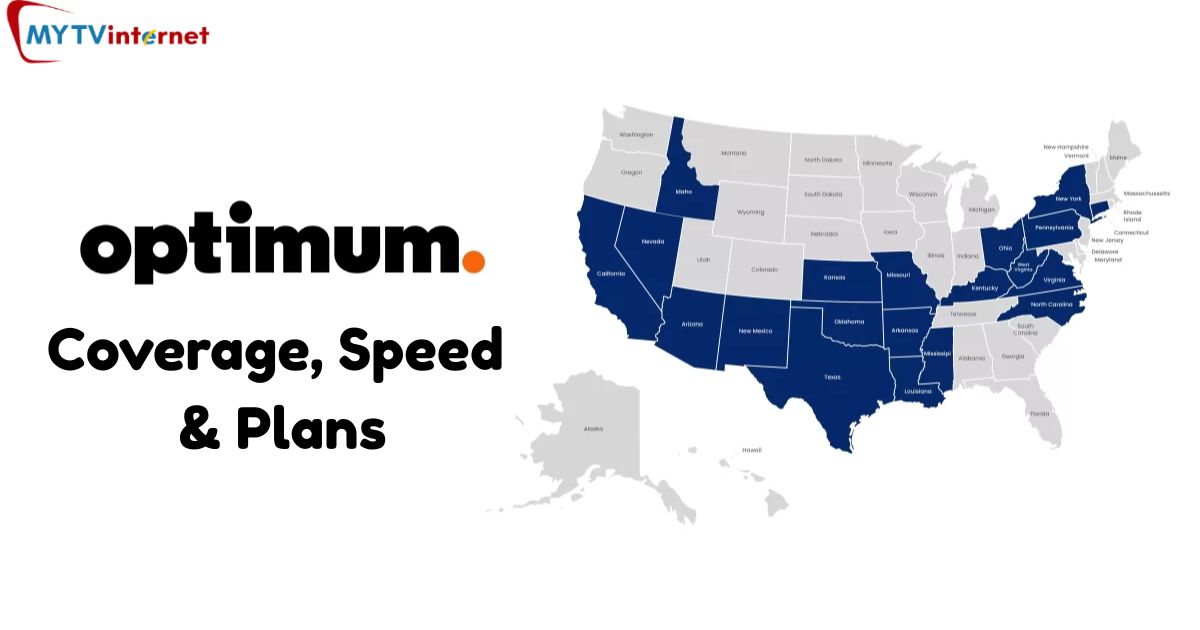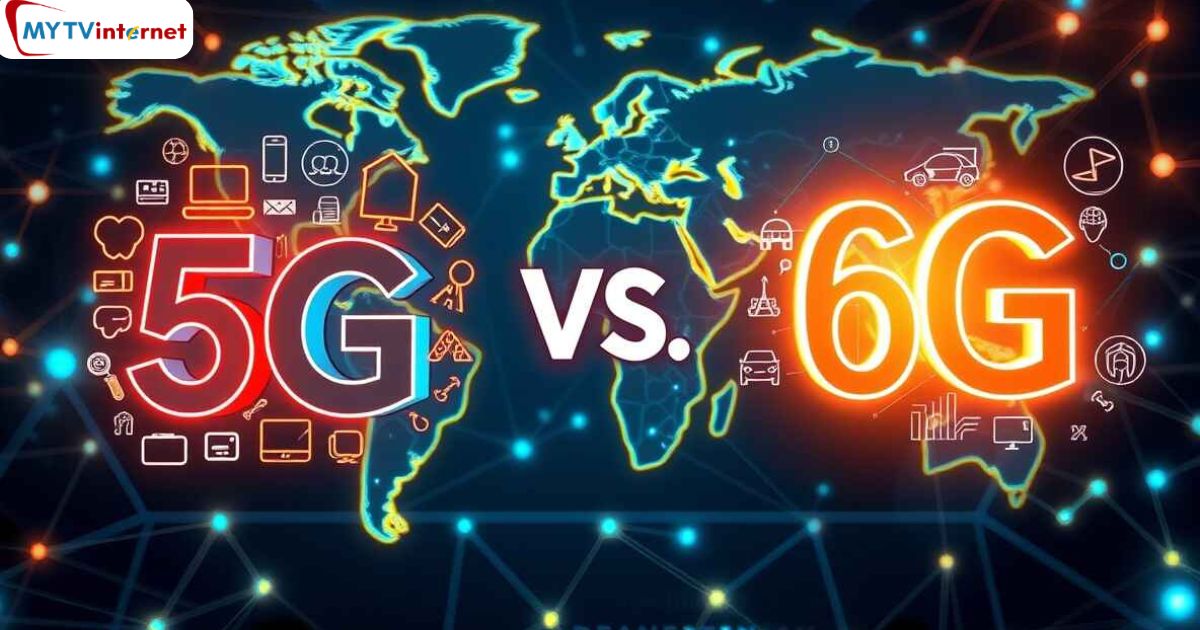Nowadays, users love to access 5G network on their desktops, laptops, or mobiles, being at home or the office, but slow network and speed issues divert them to other alternatives like Home WiFi. However, 5G is the latest phone network technology for mobile users and can serve as a wireless option to conventional Home Internet. On the other side, Home WiFi is a short wireless network for local regions used to attach equipment within an office or home, and needs a wired Internet source like fiber or cable to offer Internet access. This article covers the key differences between 5G Internet vs Home WiFi and its features.
What is 5G Internet?
5G Internet is a fifth-generation phone technology that utilizes high-frequency radio waves to provide broadband connections directly to houses. With 5G Home Internet speed, a promised receiver with a modem or a fixed wireless gateway chooses the 5G signal from a close phone tower, then produces a WiFi network in the house for attached equipment. 5G signals visit over wireless structure that makes establishment faster and sometimes less costly compared to wired solutions.
Claim Your $100 Discount—Call Now: +1(855)375-6541Offerings
- Bigger download speed compared to older wireless generations provides up to 300 Mbps speed.
- Lower latency for tasks such as video discussion and online gaming.
- Huge device potential, which means multiple gadgets will be online consistently.
However, presentation relies on local coverage, and speed may vary with weather, signal potential, or network disturbance.
What is Home WiFi?
Home WiFi is a local wireless router produced by a router inside the house. This router is attached to the Internet by a cable service like fiber, DSL, or cable. The WiFi setup streams Internet access throughout the home that enables laptops, smartphones, smart TVs, and more to be online without being in.
A few routers provide 5GHz WiFi or dual-band for quicker speed indoors, but are separated from 5G phone Internet
. Cable WiFi provides.
- Continuous speed offers a gigabit standard if utilizing cable or fiber.
- Efficient connectivity with low threat of interventions or dead zones inside the house.
- Service is not impacted by most external causes like physical restrictions and weather.
When to Choose 5G or Home WiFi?
- You can choose 5G Internet for ultra-fast applications in regions with excellent 5G coverage, mobile usage, and smart home integration, and where low latency is unfavourable.
- Access Home WiFi for efficient and continuous Internet access in a fixed address, affordable data use for daily online tasks such as streaming and surfing , and the time you require to attach multiple equipment within your house.
Key Differences Between 5G and Home WiFi
| Feature | 5G Internet | Home WiFi |
|---|---|---|
| Technology | Wireless Phone | Local WiFi and Cable Connection |
| Setup | Receiver + Router | Cable Modem and Router |
| Speed Range | 40 to 300 Mbps on average | 100 Mbps with 1 Gbps fiber or cable |
| Reliability | Weather-Reliable and Can Vary | Stable and Continuous |
| Coverage | Urban, Rural, and Suburban | Only Inside Home |
| Dependencies | 5G Phone Tower Closeness | Internet service provider wiring to the home |
| Device Assistance | Various Devices Rely on the Gateway | Multiple equipment rely on the router |
| Installation | Simple, fast, and convenient wireless installation | May need wiring or a technician |
| Mobility | Gateway performs only at a single address | WiFi only for home coverage |
Which is Better for Home Use?
Both alternatives can include usual home necessities such as video calls, streaming, gaming, and smart home management, but the option relies on preferences and mobile data plans.
- Consumers in urban regions with robust phone coverage may obtain 5G Home Internet, a versatile and quick solution, particularly where running wires is costly or troublesome.
- Houses with desirable online tasks and multiple equipment such as 4K streaming, video editing, and VR obtain more stability from a cable Internet WiFi utilizing cable or fiber.
- Those in remote regions deprived of cable Internet service providers may choose 5G for versatility, despite the presentation can differ with address.
5G Internet service provides ultra-fast and wireless connections utilizing mobile networks, which is perfect for fast installation and versatility, but may encounter instability from a bad signal or network disturbance. Home WiFi, energized by cable Internet services, offers robust efficiency, continuous speed, and smooth coverage indoors. This makes it an excellent alternative for high-volume and slow Internet usage. This perfect option relies on equipment, coverage, tasks, and funding. To know more about 5G Internet vs Home WiFi coverage, get in touch with the My TV Internet customer care number.
FAQs
Is 5G Home Internet better than WiFi?5G Home Internet can provide more versatility and quicker speeds compared to multiple conventional WiFi installations, particularly for gaming and broadcasting, but this may encounter signal inconsistency and coverage gaps than cable WiFi in houses.
Should I use regular WiFi or 5G?Regular WiFi on the 2.4 GHz band is excellent for better wall penetration and broader range for office or home usage, whereas 5 GHz WiFi provides quicker speed over shorter distances. It is suitable for streaming, gaming, or video calls near the router.
Can 5G replace my home Internet?Yes, 5G can remove your home Internet, which depends on a few factors like speed and coverage in your region.

.jpg)

